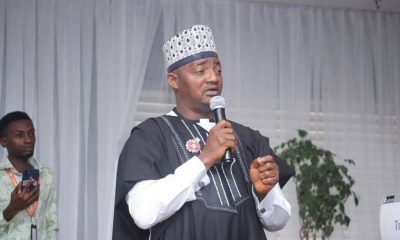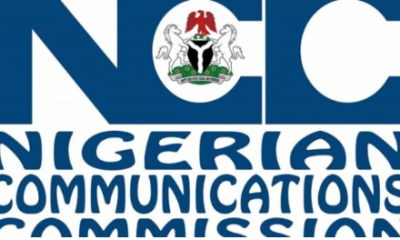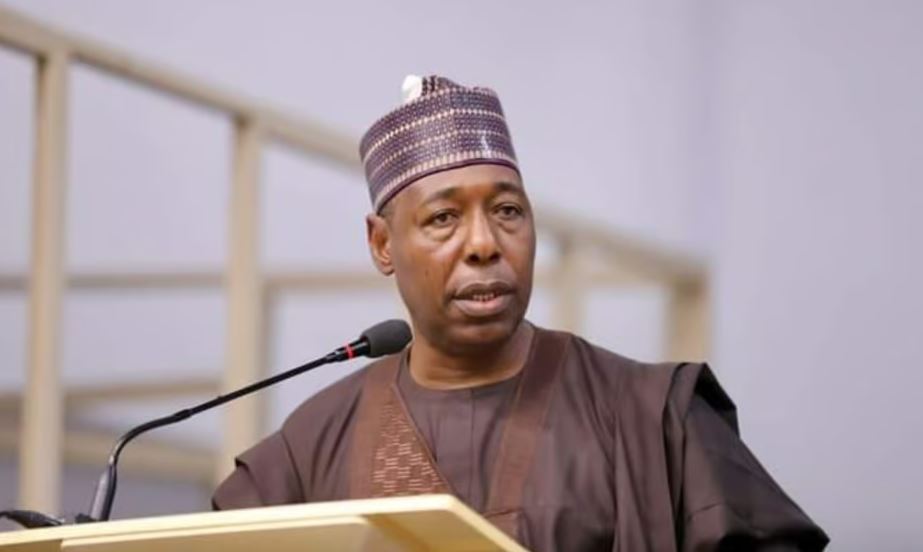Borno State Governor Babagana Zulum has articulated the Northern Governors’ Forum’s rationale for urging President Bola Tinubu to delay implementation of the controversial tax reform bills.
Speaking on Channels Television’s Sunday Politics, Zulum underscored the need for extensive consultations, highlighting the potential for economic inequities if the bills are passed in their current form.
The contentious reforms include the Joint Revenue Board of Nigeria (Establishment) Bill, 2024, and the Nigeria Tax Bill, 2024, which aim to overhaul Nigeria’s tax system.
While proponents argue the reforms are vital for increasing revenue and ensuring fiscal sustainability, critics like Zulum contend that the changes disproportionately favor Lagos and Rivers States, to the detriment of the northern region.
Governor Zulum emphasized that the Value Added Tax (VAT) provisions within the reform bills could drastically reduce revenues for Northern states, which rely heavily on federal allocations.
“We conducted our own research and concluded that Northern states would lose significantly under the proposed VAT provisions,” Zulum stated.
“The reforms seem designed to benefit Lagos and Rivers disproportionately. Why the rush? We advised the Federal Government to expunge clauses that are inimical to Northern Nigeria.”
READ ALSO: Gov. Zulum’s son reacts to reports that his brother killed someone
Zulum argued that the North’s economic structure, which relies on agriculture and low-income activities, contrasts sharply with the commercial and industrial base of Lagos, a state already capturing a significant portion of VAT revenues. This, he warned, could exacerbate existing regional inequalities.
Governor Zulum clarified that the call for suspension is not a rebuke of President Tinubu’s administration but a plea for measured action.
Zulum, a staunch member of the All Progressives Congress (APC), reiterated his long-standing support for Tinubu, citing his advocacy for southern leadership within the party during the 2023 elections.
“I am a strong member of APC and one of Tinubu’s earliest supporters,” he noted. “This is not about politics or opposition; it’s about ensuring equity and protecting Northern interests.”
Dr. Nasir Shuaib, an economist specializing in regional development, agrees with Zulum’s assessment. “The current tax system redistributes wealth from high-performing states to less-developed regions. These reforms could dismantle that balance, deepening economic disparities,” he said.
Conversely, Professor Tina Akande, a fiscal policy expert, argued that the reforms are necessary. “These bills aim to decentralize revenue generation and empower states to develop independently. Northern governors should see this as an opportunity to diversify their economies,” Akande remarked.
The Northern Governors’ opposition also underscores broader tensions in Nigeria’s fiscal federalism. States like Lagos and Rivers, which generate substantial revenues, have long advocated for fiscal decentralization, arguing that the current structure disincentivizes efficiency.
However, Northern leaders, including Zulum, argue that historical imbalances in development and infrastructure necessitate federal redistributive mechanisms. They fear that without these safeguards, the North could be left behind in Nigeria’s economic trajectory.
Public hearings on the tax bills are expected in the coming weeks, providing stakeholders with an opportunity to voice concerns.
Governor Zulum and his counterparts are likely to push for amendments that address perceived inequities while ensuring that the reforms align with Nigeria’s broader development goals.
The unfolding debate will test President Tinubu’s ability to balance competing regional interests while pursuing a tax system that can sustain the country’s fiscal needs.

 Energy6 days ago
Energy6 days ago
 Business5 days ago
Business5 days ago
 Sports1 week ago
Sports1 week ago
 Business5 days ago
Business5 days ago
 Business1 week ago
Business1 week ago
 Entertainment5 days ago
Entertainment5 days ago
 Business6 days ago
Business6 days ago
 Latest5 days ago
Latest5 days ago



